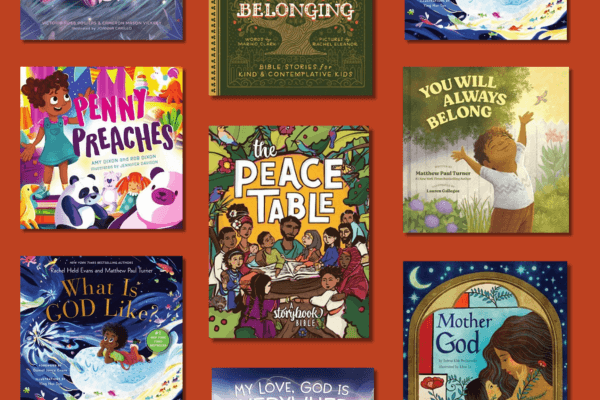There was an attack on a Chabad synagogue in California this weekend: During Passover celebration, one person was killed and three were injured. The attacker grew up in an Orthodox Presbyterian Church (OPC) congregation, a very similar tradition to Presbyterian Church in America (PCA), my own background. His manifesto cited ideas that come from a conservative Reformed theology. Although he is clear that he didn’t learn these things from his family, his use of faith and position in the church place the responsibility on us to interrupt these ideologies. It is disgusting that someone would use the name of Jesus as a cover for vile deeds, especially the ancient sin of anti-Semitism. This time it cuts close: My own tradition is implicated.
This twisted hate of anti-Semitism isn't the logical end point of my tradition but rather a perverted version of it — a version that has flourished before but has never been right or faithful.
While the Orthodox Presbyterian Church has officially condemned the attacker’s ideology and mourned with the Chabad of Poway, we can’t ignore the ways Christianity has promoted and proliferated anti-Semitism. From early church father John Chrysostom delivering his “Eight Homilies Against the Jews” in the fourth century, to Martin Luther calling for the outright persecution of Jewish people in the in 16th century. This false teaching blaming Jewish people for the death of Jesus has laid the theological groundwork for violent programs in the past as surely as it set the stage for the attack on Chabad of Poway.
Anti-Semitism is an element of a broader white supremacy plaguing our nation. My own denomination has spoken concretely of how it has failed to be faithful to God’s vision of racial equity in the past and begun to lay out a plan for the future. Still, strains of the Southern Presbyterian culture that fail to take white supremacy and anti-Semitism seriously persist within the broader Reformed movement. One needn’t look further than Douglas Wilson, the continued endurance of segregationism disguised as “kinism,” or the pastor of the one of the largest PCA churches, Henry Reeder of Briarwood Presbyterian, speaking at a Confederate Memorial Day.
In the conservative Reformed world, we like to think of ourselves as confessional, greatly appreciating the Westminster Standards, a series of 17th century confessions, catechisms, and directories of worship. Agreement to these confessions, in more or less detail, is required before taking a leadership role in either the OPC or the PCA. Although the Reformed tradition authored these confessions before the full structure of modern racism was established, these documents contain seeds that cannot properly coexist with white supremacy today.
One of the gifts of the Westminster Larger Catechism (WLC) is its detailed exploration of God’s law – the law which Jesus glosses as: “Loving God and loving our neighbor as ourselves.” Expounding on the second clause, the catechism urges Christians to consider “the dignity and worth of each other… giving honour to go one before another… rejoic[ing] in each other’s gifts and advancement as their own” (WLC 131). This instruction extends to the magistrate – a role fulfilled by the general public in our current democratic order. We must maintain social order in “piety, justice and peace, according to the wholesome laws of each commonwealth” (Westminster Confession of Faith 23.2). Any form of anti-Semitism or white supremacy blatantly violates the personal moral law as well as our public responsibility as citizens.
More than a narrow confessionalism, my personal experience of Reformed Christianity has been defined by God’s personal love for me and the imperative that I share this love with the world. People often use the acronym TULIP to summarize some key themes of Reformed soteriology: Total depravity, Unconditional election, Limited atonement, Irresistible grace, and Perseverance of the saints. The Chabad attacker himself is apparently fluent in this language.
My vision of these doctrines of grace drives me to deep humility before God and comfort in distress which is incompatible with the arrogant pride of white supremacy and anti-Semitism. God chose me (unconditional election and limited atonement), through no merit of my own (total depravity), and drew me close with an infinite beauty which is so dazzling that I cannot and would not want to look away (irresistible grace and perseverance of the saints). If this is the case, how can I be proud? Boasting is impossible. God’s love must spark in me a deep gratitude and a drive to mimic that love. Any self-satisfaction based on race or religion is nonsensical.
The whole Southern Presbyterian tradition is soaked in injustice but it doesn’t have to be. In 2016, the PCA passed a resolution in which they “recognize[d], confess[ed], condemn[ed] and repent[ed] of past failures to love brothers and sisters from minority cultures in accordance with what the Gospel requires, as well as failures to lovingly confront our brothers and sisters concerning racial sins and personal bigotry...” Passionate theologians such as Jemar Tisby have continued to push us to consider how the OPC and other groups in this tradition can and must respond to our past and chart a brighter future.
As a culture, we should not obsessively demand defense from religious groups when a member of them commits an atrocity. But the history of my movement demands some serious reflection, confession, and renewed action to live into the best parts of the Reformed tradition. I'm struggling through how to best build a community founded in justice and how to be a faithful friend to my Jewish neighbors who are rightfully afraid right now. We must build peace – which means we must make sure that teenagers in our churches don't ever think that anti-Semitism or white supremacy is within the bounds of our tradition or is Christ-like.
Got something to say about what you're reading? We value your feedback!







